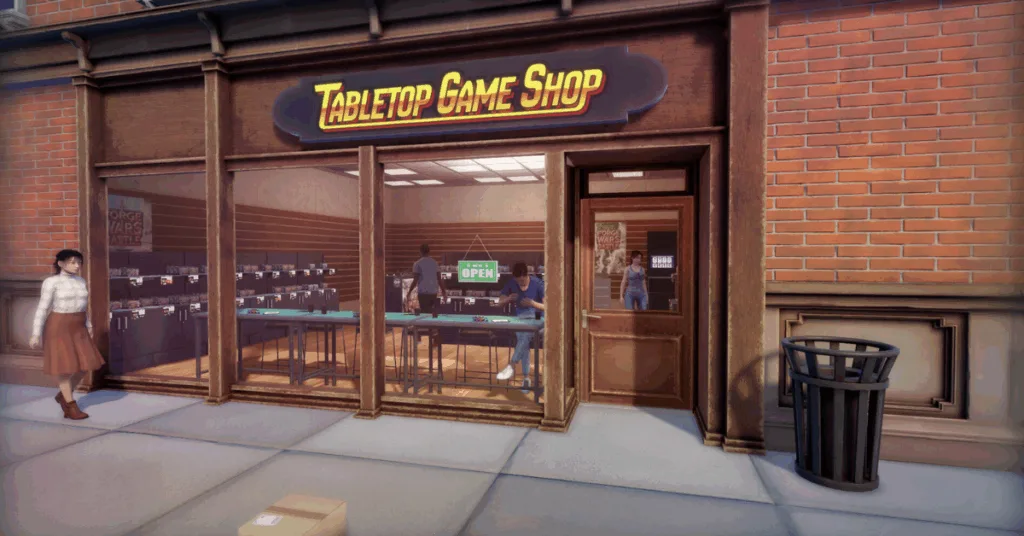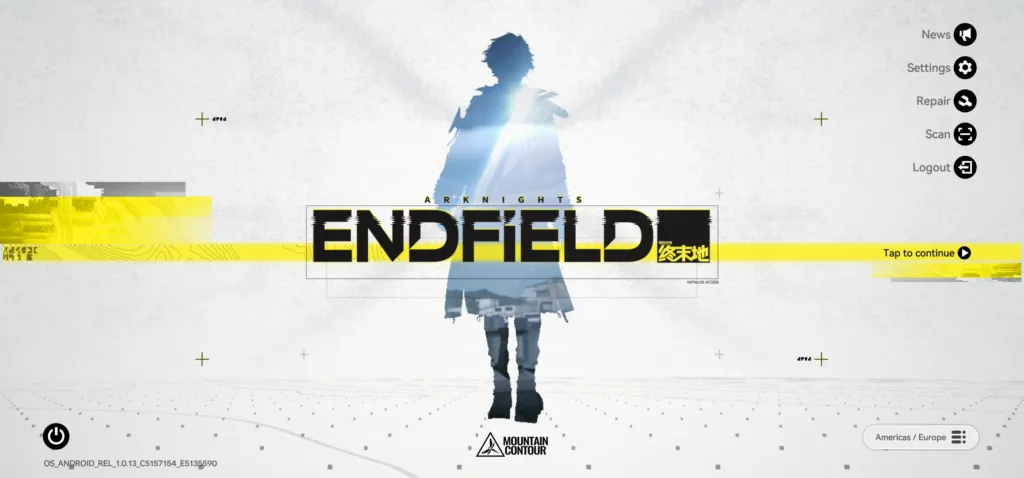Tabletop Game Shop Simulator is a cozy store management and simulation game available on PC (Steam). It puts you in charge of your very own tabletop game shop, where you’ll stock shelves, manage customers, and slowly grow your business from a small corner store into a big empire. It’s surprisingly relaxing, and the progression loop of expanding your space and customizing your shop is genuinely satisfying.
Did it live up to the cozy sim dream? Read on and find out.
First 60 Minutes With Tabletop Game Shop Simulator
The first hour in Tabletop Game Shop Simulator does a great job setting the tone. You start small, a nearly empty shop, a few starter shelves, and a dream of building something bigger. It doesn’t take long before you’re unpacking boxes, greeting customers, and selling stuff. It’s a slow but satisfying introduction that eases you into the game’s systems without overwhelming you. You have an option to open boxes for yourselves but I tried to keep it to a minimum in order to earn more money. Which was really hard, I wanted to open all of them but I would go bankrupt on day one.
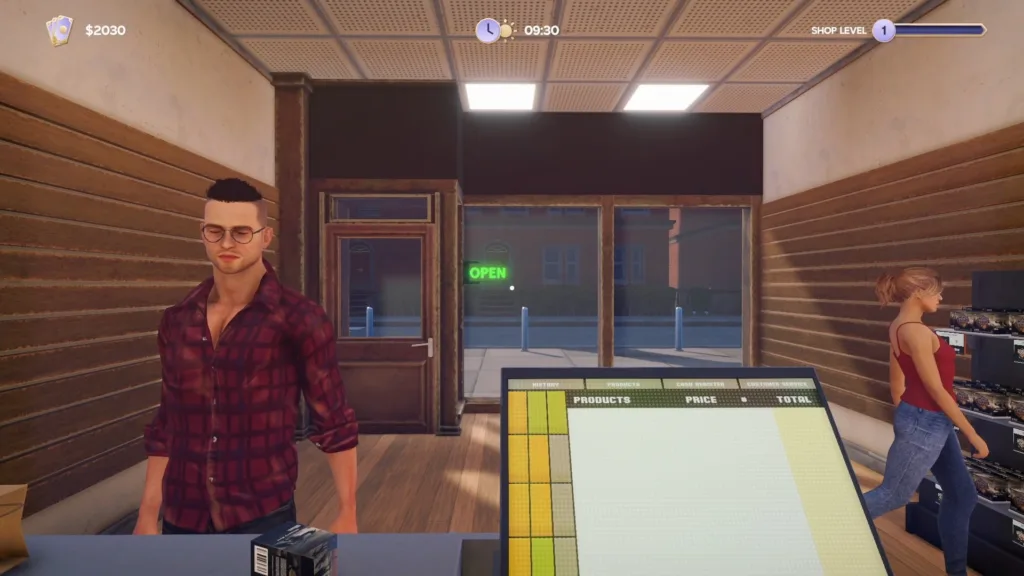
Tabletop Game Shop Simulator Gameplay
At its core, Tabletop Game Shop Simulator follows the familiar rhythm of classic sims. Start small, expand gradually, and keep your customers happy. You’ll spend most of your time stocking shelves, organizing displays, and balancing your budget as your little shop slowly turns into a thriving business.
So, the theme of the shop is that you’re mainly selling boxes that contain parts for various miniature figurines. You’ll be able to collect them for yourself, glue and paint the parts, and then you can either display them on shelves or sell them for a profit.
There’re other miscellaneous things that you can sell at the shop like rulebooks,dice, brushes, paint, and various books. Which at times, I felt like they’re selling way more than the boxes.
The controls are simple and easy to pick up, making it approachable even if you’re not a hardcore sim player. Progression feels steady, with new products, upgrades, and customization options unlocking as you go.
When it comes to painting minis, it’s done with a skill-check system aka you gotta wait till the moving circle goes in another circle. Which progressively gets harder with each “brush stroke”. I don’t particularly have anything against it but it kinda takes away the ability to make unique minis. That’s maybe one improvement devs could implement in the future.
Besides that, the only issue I have is against those youngsters leaving trash all over my store. Like damn, trashcan is right there, STOP leaving trash on my floor. Have some manners, DAMN IT.
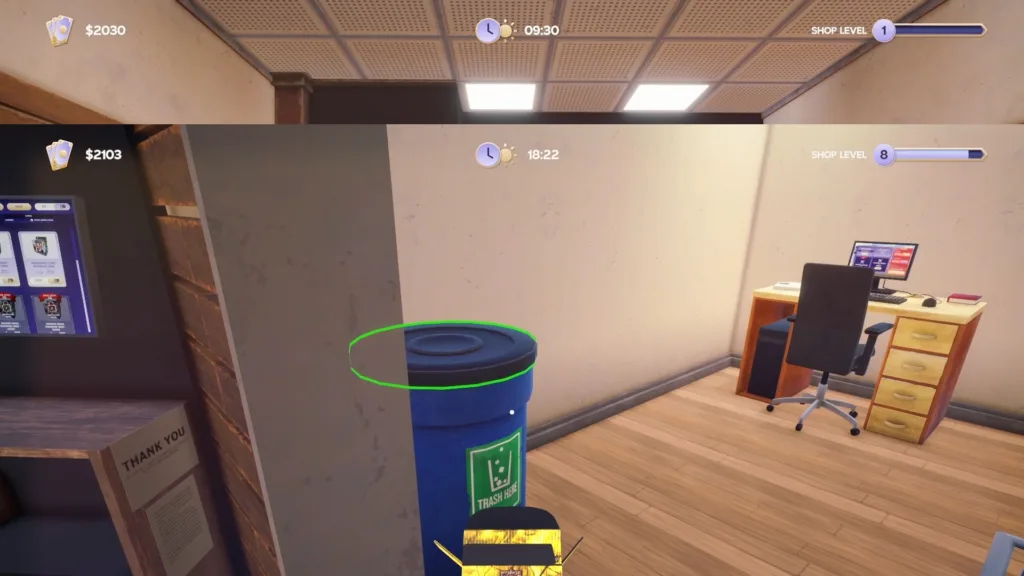
Graphics, Art & Sound
Tabletop Game Shop Simulator isn’t trying to impress anyone with high-end visuals and that’s fine. The graphics are simple but charming. It’s not a detailed world, but it gets the job done: shelves look neat, products are recognizable, and the shop has just enough character to feel alive.
Performance is stable on most PCs, with quick load times and smooth frame rates. You won’t find fancy animations or complex effects here, but it runs cleanly and rarely glitches.
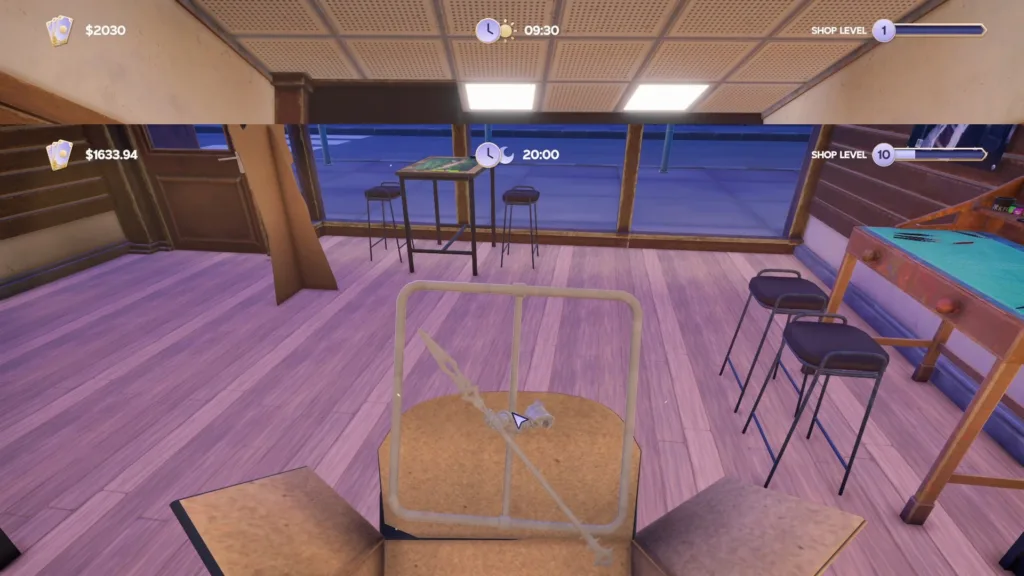
Tabletop Game Shop Simulator Pros & Cons
Like any good sim game, Tabletop Game Shop Simulator has its fair share of highs and lows. Whether you’re into chill management games or just love the idea of running your own geeky store, here’s what stands out the most:
Pros:
Let’s start the pros column with an obvious, the one reason all of us play simulator games is because they’re relaxing/low-stress and TGS Simulator is that. It also has a simple but charming art style which leads to stable performance with minimal bugs that can be fixed easily or ignored completely. And lastly, I would like to add that while it looks like a couple other sims, it has its own unique spin on how it should look and if you pick this one over the other ones, you won’t regret it.
Cons:
Talking about the bad things about TGS Simulator,well, it’s the same as any simulator game that comes to your mind. After some time you reach a certain point where tasks get very repetitive and you’ll be stuck in a loop where most players quit. Lastly, the visuals and animations are more on a basic side, personally I would love to see a few improvements to animations of pack openings. Getting a rare piece of minis should have some cooler animations which would increase the amount of dopamine hit.
Final Verdict
My gameplay of Tabletop Game Shop Simulator started with a semi low energy level but as I played more and more, my excitement for it grew. By the time I noticed, I was already deep in, trying to make business bloom and open as many packs for myself. I guess I have a weak spot for these types of games, I could play them all day.
If you’re someone who likes to play simulator games, try to run a successful business, or play tabletop games, then this game is definitely for you.
FAQs
Tabletop Game Shop Simulator is a cozy store management and business simulation game where you run your own tabletop shop. You’ll manage stock, serve customers, decorate your store, grow your business, collect and color figurines.
There’s no fixed “ending.” It’s more of a sandbox experience, where you can play indefinitely, expand your store, and fine-tune your setup at your own pace.
The game is currently available on PC (Steam). There’s no official console or mobile release yet, but controller support is planned for future updates.
Pavle is the founder of PlayForge and its lead writer and reviewer, covering PC, PS5, and mobile games, a with a focus on RPGs, MMOs, FPS games, and more. He’s been gaming since the PS2 days and now writes in-depth reviews and guides to help players find their next obsession and get gaming insights from real players, not just critics. His reviews are honest and transparent, but he always tries to stay positive, because in his opinion, almost any game can be fun if you look at it the right way.
In his free time, he likes to (obviously) play more games, spend time with his family, theorycraft about various media with his wife, and watch anime. So yes, he’s a complete nerd, even if he’ll never admit it.
